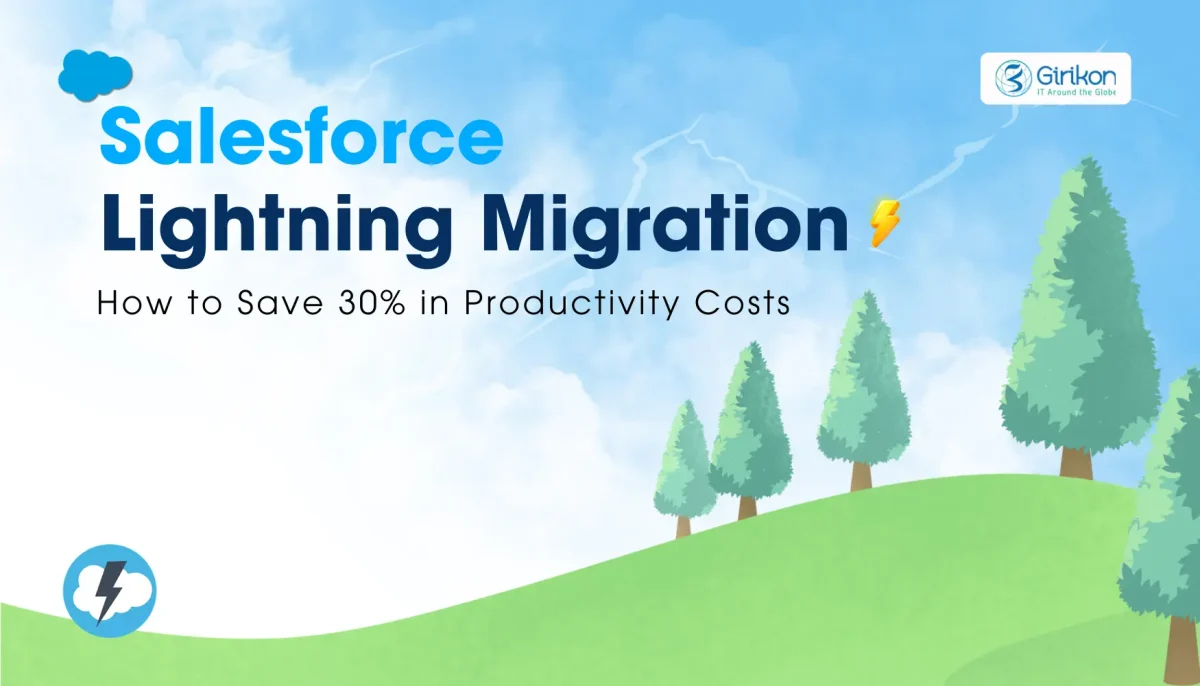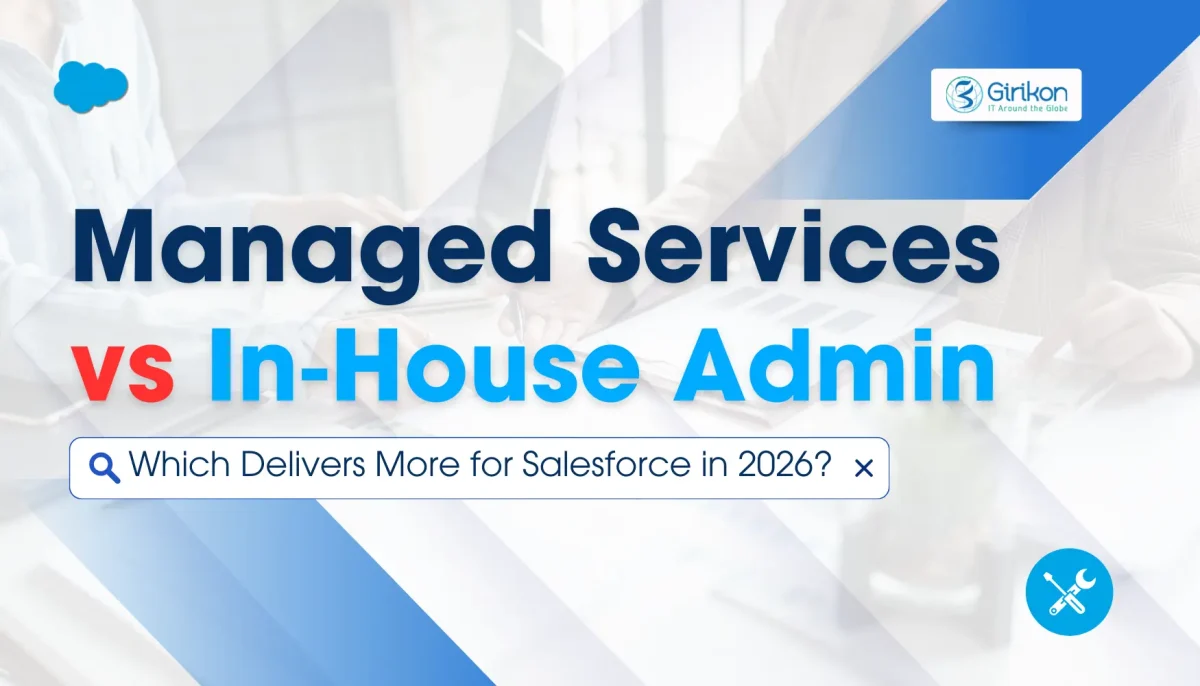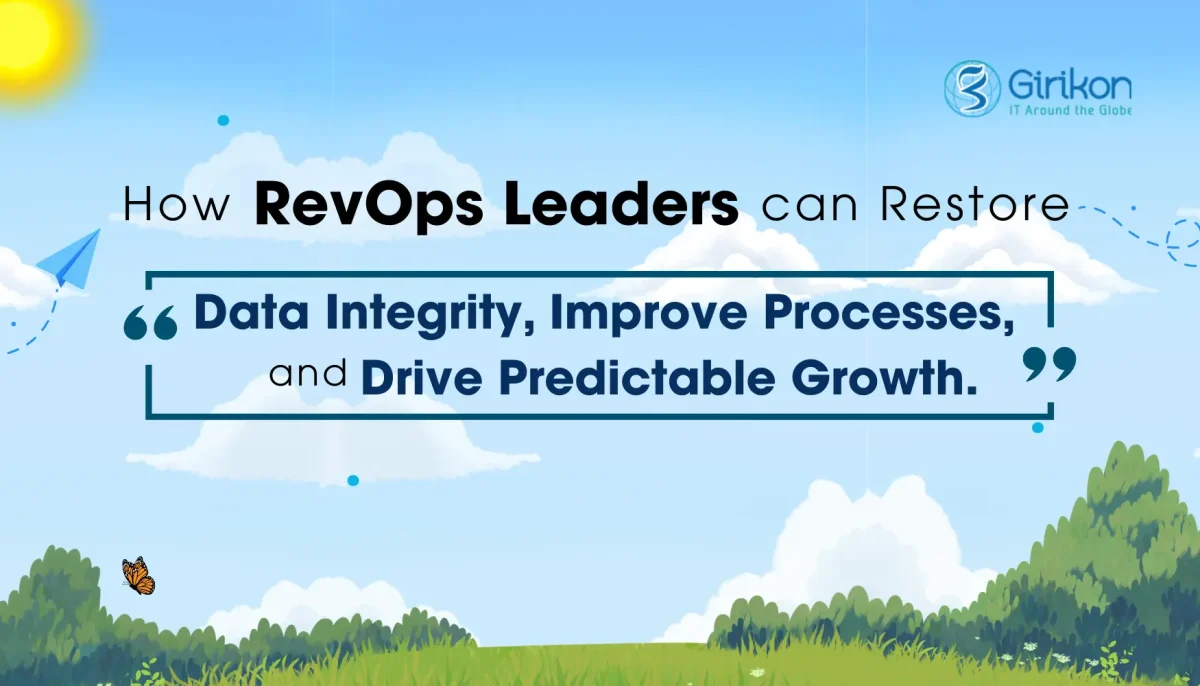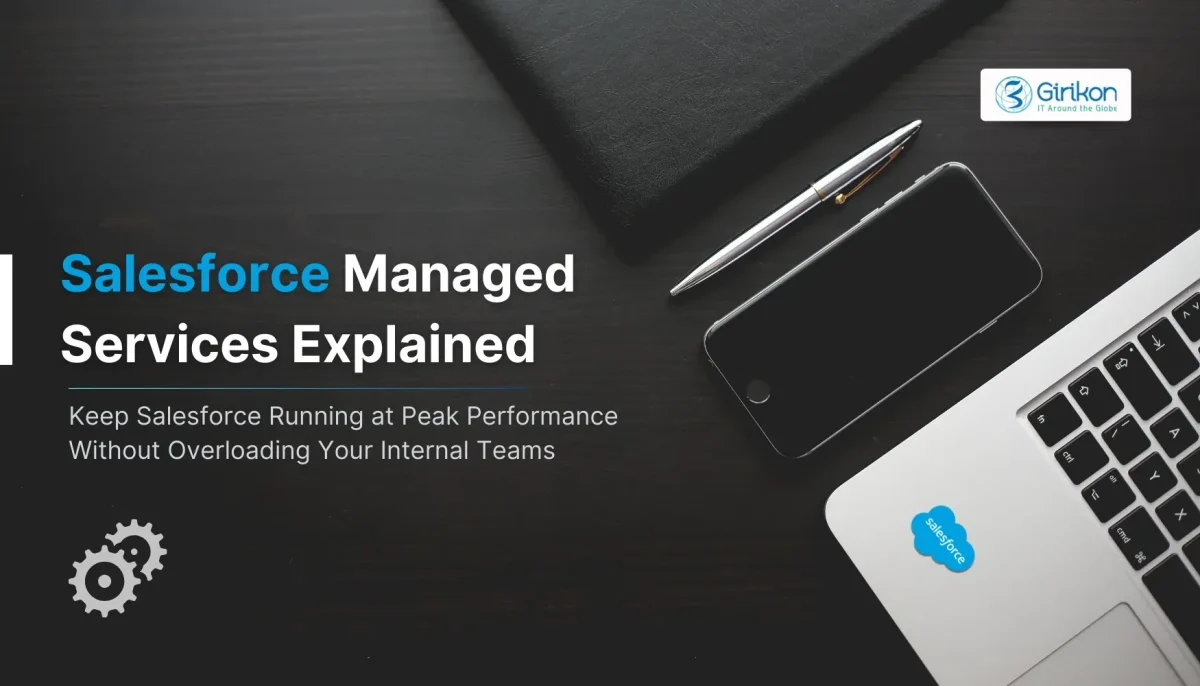Salesforce and ServiceNow are the two most popular platforms in the CRM and service management world—but choosing the best one really depends on the complexities your business is currently facing.
Many Salesforce consulting companies compare these platforms by using a simple relatable analogy or thinking of them as two different types of cars. Salesforce is your sleek, higher performance sports car, while ServiceNow is the all-terrain and dependable SUV. Both of them come with the fundamental features everyone needs—wheels, engines, seats, etc. (or in CRM terms, dashboards, integrations, and automation), but each is engineered for a different journey.
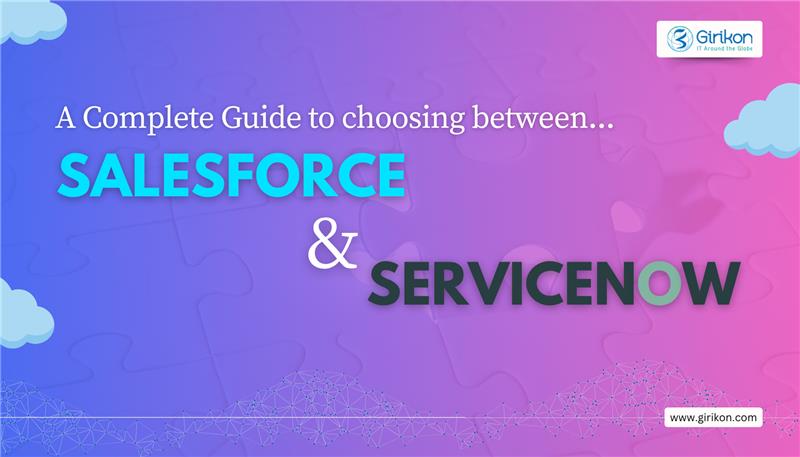
Just as you wouldn’t take a sports car off-road or expect an SUV to win a racetrack sprint, these platforms are purpose-built to thrive in different business environments. This blog will let you explore more about what sets them apart, where they shine, and which one will take your business where it needs to go.
Salesforce vs Service Now: A Complete Insight
While Salesforce is a customer relationship management software that enables businesses to find opportunities in better connecting with customers, ServiceNow is an enterprise workflow automation platform that lets businesses stay organized and be more productive.
With Salesforce, businesses can easily get an insight into customer information from a centralized place, thus enabling different departments like marketing, service, and sales to provide their customers with more personalized experiences. On the other hand, ServiceNow offers a suite of customizable and low code tools that bring automation across the overall enterprise and improve service quality.
Salesforce and ServiceNow: Is There Anything Familiar Between Them?
Yes, there are a lot more similarities between ServiceNow and Salesforce that we’ve compiled in this section.
Customer Service Management
While ServiceNow has Customer Service Management, Salesforce has a Service Cloud that helps businesses accumulate, manage, and make the most of customer data to provide them with personalized experiences.
On the other hand, Service Cloud CSM is a wholesome platform, letting businesses easily engage with customers, manage processes, and offer services. That’s not it, even ServiceNow CSM focuses on planning and coordinating activities too between support teams and customers to fix customer queries seamlessly.
Here is a detailed comparison of ServiceNow CSM and Service Cloud in terms of customer service management.
|
Features |
Salesforce Service Cloud |
ServiceNow Customer Service Management (CSM) |
|
Omnichannel Customer Engagement |
Enables customer support across social media, web, applications, email, etc., and connect third-party channels with API & integration. |
It also encourages communication across social media, email, phone, web, and more. |
|
Robotic Process Automation |
Automates repetitive and mundane tasks without any kind of coding needs. |
Leveraging its task intelligence capabilities, it automates the process of creating, prioritizing, and investigating issues. |
|
AI Agents |
Within Salesforce Agentforce, you can have pre-built AI agents that can communicate with customers in their natural language and resolve their queries. |
ServiceNow also has AI agents that come with the capabilities of understanding the design, step-by-step processes and context. Thus, seeking approvals from live agents whenever it is required. |
|
Self Service |
With a declarative interface, you can easily set up branded self-service portals that provide quick answers to commonly asked questions. |
It deploys a self-service portal for new cases to be opened and existing cases to be reviewed and updated, and third-party web/mobile app are built with no code configuration. |
|
Workflow Optimizations |
Using its no-code solutions, it automates complex and frequent business processes. |
It provides real-time visibility into agent performance, predicting their demands, and making sure that the agents are available when customers need them. |
|
Chatbots |
It has Einstein bots, offering multilingual support to customers across different channels. |
It offers AI-powered conversational chatbots that automate resolution and solve customer queries with GenAI. |
Order Management
With order management capabilities built directly into the CRM, Salesforce enables businesses to manage their entire order lifecycle. While ServiceNow has a product named Order Management that streamlines the entire order lifecycle process from a single platform. Here is more on the comparison between ServiceNow and Salesforce Order Management. Consider reading further to learn more:
|
Features |
Salesforce Order Management |
ServiceNow Order Management |
|
Third-party Integrations |
While integrated with third-party systems, it captures order details in Salesforce. |
It features order capture APIs that seamlessly collect and record orders from multiple sources in ServiceNow. |
|
Centralized Order Data |
In a centralized place, it provides all order-related information like payment terms, order history, customer records, and more. |
It also unifies the entire order management lifecycle in one place. |
|
Self-Service |
It allows users to track, view, and cancel orders. |
It does the same thing, i.e., enabling users to view, place, and track orders. |
Field Service Management
Now, to let businesses manage and optimize their field service experiences, Salesforce empowers businesses to take charge of their operations with a specialized solution—Field Service Lightning (FSL). It is a unified platform that integrates the products, workforce, and customers into one platform to streamline field service operations.
Meanwhile, ServiceNow has Field Service Management (FSM), an integrated system designed to link teams through a centralized system of action that facilitates exceptional service outcomes. The following table provides a quick glance at how Salesforce Field Service Lightning stacks up against ServiceNow Field Service Management.
|
Features |
Field Service Lightning |
Field Service Management |
|
Dispatch Management |
It provides a Dispatch Console that ensures that information related to absence, skills, and availability is available. |
Meanwhile, it has a single configurable workspace that makes resource coordination easier and promotes efficient allocation of work. |
|
Visual Remote Assistant |
It allows customers to connect with experts who can resolve their issues, eliminating the need for them to make any on-site visits. |
While taking support from the multilingual virtual agents, customers can find solutions to their problems in their preferred language. |
|
Schedule Work Orders |
By following the priority and constraints complied with service level agreements, it enables the scheduling of the work. And with AI, it automatically assigns the job to the best available agent. |
It assigns the right resources based on factors like territory, priorities, and more, thus automating the process of work order scheduling. |
|
Mobile Accessibility |
Its mobile application is available for both iOS and Android that offers offline capabilities too for field service reps to work even during low or no internet connectivity. |
Its mobile application comes with offline capabilities for the sales team to work remotely at any time. |
|
Field Service Territories |
It includes a concept called Service Territories that enables you to give a territory to each field service agent. |
It includes a configurable interface to visualize, manage, and craft more territories. |
|
Asset Management |
It offers real-time asset tracking for the usage, condition, and other specific criteria. |
It provides a single repository for field service agents to keep track of all the utilized assets. |
ESG Management
Among various other platforms that Salesforce has, Net Zero Cloud is one among them that helps businesses reduce carbon emissions. It centralizes all the data related to carbon emissions into one platform, letting you easily monitor and take essential steps to reduce the carbon footprint and make the most of Salesforce support.
Moreover, Net Zero Cloud is also not limited to ESG management as its comprehensive platform enables businesses to meet their sustainability goals at ease. With ServiceNow’s product ESG management, businesses can create a single source of action for all the data related to the social, environmental, and governance (ESG) programs of the organization. Here is a vital comparison between ServiceNow ESG Management and Salesforce Net Zero.
|
Features |
Salesforce Net Zero Cloud |
ServiceNow ESG Management |
|
Social Metrics |
|
|
|
Integration Capabilities |
You can easily integrate it with the different products available in the Salesforce ecosystem like Field, Service Lightening, Experience Cloud, etc. Moreover, you can find compatibility for third-party integration. |
From Strategic Portfolio Management to Risk Management, you can integrate it with different ServiceNow products. Besides, you can get a centralized ESG command center too as it supports third-party integration. |
|
Environmental Metrics |
|
|
|
Governance Metrics |
|
|
|
Generative AI |
With the use of the data stored in Net Zero Cloud, Einstein AI lets you create a sustainability report. |
Designed on the Now platform, ESG management can be integrated and used with Now Assistance—a generative AI solution. |
Customization
Salesforce CRM comes with an exceptional range of customization options and low development tools to let businesses align with the platform based on their unique needs. Moreover, it enables you to change the user interface and enhance default features in a way that creates the out-of-the-box components specific to the organization.
Besides, Salesforce allows for altering the Salesforce environment, all because of its code-level modifications. Moreover, it syncs connectors, middleware, and plugins altogether to exchange data with third-party systems.
ServiceNow also comes with customization options that enable the development of self-service portals based on the specific needs of an enterprise. That’s not it! Workflow customization helps automate the processes according to specific business objectives, thus allowing for the modification of complex integrations, baseline business rules, and more.
Automation and AI
In the field of automation and AI, Salesforce and ServiceNow are making significant progress. For instance, Salesforce automation helps organizations remain focused by scaling and personalizing customer experiences while relying on AI advancements like Agentforce. Moreover, its pre-built application involves the necessary data access and business intelligence required to work with human resources to provide value to customers. Besides, Salesforce includes a library of over 900 pre-built industry-specific templates that enable the automation of business processes across the organization.
Talking about ServiceNow, it is also making a significant leap in the world of AI by enabling enterprises to automate high-touch business processes. Additionally, the platform just introduced some customizable and pre-built agents, having the capability to resolve problems across departments, orchestrate workflows, and make data-driven and end-to-end automation.
What is the Difference Between Salesforce and ServiceNow?
While the main objective of Salesforce is to provide a 360-degree view to service, sales, and marketing team for building personalized marketing campaigns, closing deals, finding prospects, and offering satisfactory customer services.
ServiceNow, on the other hand, aims to streamline and automate internal business processes like—IT service management, customer service management, human resources, security operations, and more.
In a nutshell, Salesforce enables outward-facing departments of an organization to do their jobs effectively and ServiceNow ensures ideal working of internal business processes.
Which One to Pick: Salesforce vs ServiceNow?
The explanation as well as similarities and dissimilarities of Salesforce and ServiceNow should help you make the right choice between the two. Yet, the very decision for which to pick rests chiefly upon your own very specific business needs, challenges, and end goals.
You can go with Salesforce if it requires a variety of solutions under one platform that caters to your customers’ essential needs. However, you can use ServiceNow for managing internal business operations like HR management, IT operations management, asset management, and more.
Upon going with such moves, you will find the best solution for your business. However, what is more essential is to find the right Salesforce implementation partner who will help you make the most of the platform no matter if you choose Salesforce or ServiceNow.

 +1-480-241-8198
+1-480-241-8198 +44-7428758945
+44-7428758945 +61-1300-332-888
+61-1300-332-888 +91 9811400594
+91 9811400594